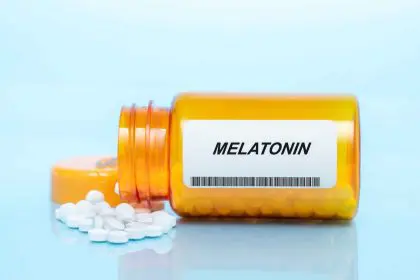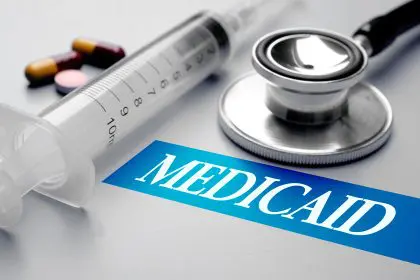Taking antidepressant medication represents a crucial step toward mental health recovery for millions of people worldwide. However, the frustrating reality is that many individuals experience worsening depression symptoms even while faithfully following their prescribed treatment regimen. This puzzling phenomenon leaves patients feeling hopeless and questioning whether recovery is possible.
The complexity of depression extends far beyond simple chemical imbalances in the brain, involving intricate interactions between biological, psychological, and environmental factors. When medication alone fails to provide relief, underlying issues may be sabotaging treatment effectiveness and contributing to deteriorating mental health symptoms.
Understanding these hidden obstacles can empower individuals to work with healthcare providers to identify and address the root causes preventing medication from working optimally. Recovery often requires a comprehensive approach that goes beyond pharmaceutical intervention to encompass lifestyle modifications, medical evaluations, and therapeutic support.
1. Underlying medical conditions masquerading as depression
Numerous physical health conditions can trigger or worsen depression symptoms, making antidepressants appear ineffective when the real problem lies elsewhere. Thyroid disorders, particularly hypothyroidism, frequently cause fatigue, mood changes, and cognitive difficulties that mirror depression but require entirely different treatment approaches.
Autoimmune conditions like lupus, rheumatoid arthritis, and multiple sclerosis often involve inflammatory processes that directly impact brain function and mood regulation. The chronic pain and physical limitations associated with these conditions create additional psychological stress that compounds depressive symptoms.
Hormonal imbalances during menopause, pregnancy, or due to conditions like polycystic ovary syndrome can dramatically affect neurotransmitter function and emotional stability. Women experiencing perimenopause may find their depression worsening despite medication as fluctuating estrogen levels interfere with serotonin production and uptake.
Sleep disorders, including sleep apnea and restless leg syndrome, prevent restorative sleep necessary for proper brain function and emotional regulation. Even with antidepressant treatment, disrupted sleep patterns continue to fuel depression symptoms and prevent meaningful recovery.
2. Medication interactions and absorption problems
Many common medications can interfere with antidepressant effectiveness or worsen depression symptoms independently. Birth control pills, blood pressure medications, and certain pain relievers can counteract the benefits of antidepressants or trigger mood changes that overwhelm treatment efforts.
Gastrointestinal issues like irritable bowel syndrome, celiac disease, or inflammatory bowel conditions can significantly impact medication absorption and bioavailability. Poor nutrient absorption affects the body’s ability to produce neurotransmitters and maintain proper brain chemistry, regardless of antidepressant dosage.
Genetic variations in liver enzymes responsible for metabolizing medications can cause individuals to process antidepressants too quickly or too slowly. Fast metabolizers may never achieve therapeutic blood levels, while slow metabolizers might experience side effects without therapeutic benefits.
Over-the-counter supplements and herbal remedies often interact with prescription antidepressants in unexpected ways. St. John’s Wort, for example, can accelerate the breakdown of many medications, reducing their effectiveness and potentially causing withdrawal-like symptoms.
3. Lifestyle factors undermining treatment success
Chronic stress from work, relationships, or financial pressures continuously activates the body’s stress response system, flooding the brain with cortisol and other stress hormones that counteract antidepressant effects. Even effective medications struggle against persistent stress-induced changes in brain chemistry and neural pathways.
Poor dietary habits, particularly diets high in processed foods and sugar, create inflammation and blood sugar instability that negatively impact mood regulation. The gut-brain connection means that digestive health directly influences mental health, and poor nutrition can prevent antidepressants from working optimally.
Sedentary lifestyles contribute to depression persistence by reducing the production of mood-boosting endorphins and limiting exposure to natural light. Regular physical activity promotes neuroplasticity and enhances the effectiveness of antidepressant medications through multiple biological pathways.
Social isolation and lack of meaningful connections deprive individuals of essential emotional support and positive experiences necessary for mental health recovery. Antidepressants alone cannot replace the psychological benefits of strong social relationships and community involvement.
4. Substance use sabotaging recovery efforts
Alcohol consumption, even in moderate amounts, can significantly interfere with antidepressant effectiveness and worsen depression symptoms. Alcohol acts as a central nervous system depressant, counteracting the mood-lifting effects of medication and disrupting sleep patterns essential for recovery.
Recreational drug use, including marijuana, can complicate depression treatment by altering brain chemistry and motivation levels. While some individuals use substances to self-medicate, this approach typically worsens depression over time and prevents medications from working properly.
Caffeine overconsumption can exacerbate anxiety symptoms often associated with depression and interfere with sleep quality. The cycle of caffeine dependence and withdrawal can create mood swings that mask or worsen underlying depression symptoms.
Nicotine addiction creates additional stress on the body and brain, triggering inflammatory responses that contribute to treatment-resistant depression. The act of smoking also reinforces negative coping patterns that interfere with developing healthier stress management strategies.
5. Inadequate dosage or wrong medication match
Individual variations in brain chemistry mean that finding the right antidepressant and dosage often requires trial and adjustment periods that can take months or even years. Many people give up too quickly or assume their depression is untreatable when they simply haven’t found their optimal medication regimen.
Some individuals require higher doses than typically prescribed to achieve therapeutic effects, while others may need combination therapy involving multiple medications. The complexity of neurotransmitter systems means that single-medication approaches don’t work for everyone.
Genetic testing can reveal how individuals metabolize different medications, but this information isn’t always utilized in treatment planning. People who are poor metabolizers of certain antidepressants may need alternative medications or adjusted dosing schedules to achieve benefits.
Seasonal variations in depression severity may require medication adjustments that aren’t always made proactively. Many individuals experience worsening symptoms during winter months that require temporary dosage increases or additional light therapy interventions.
6. Trauma and unresolved psychological issues
Past traumatic experiences create lasting changes in brain structure and function that medication alone cannot fully address. Complex trauma often requires specialized therapeutic interventions alongside pharmaceutical treatment to achieve meaningful recovery.
Childhood adverse experiences can alter stress response systems and neural development in ways that make depression more treatment-resistant. These deep-rooted patterns often require comprehensive therapy approaches that address both current symptoms and historical trauma.
Ongoing traumatic situations, such as domestic violence or workplace harassment, continuously retraumatize individuals and prevent healing regardless of medication effectiveness. Safety and environmental changes may be necessary before antidepressants can provide significant benefits.
Post-traumatic stress disorder frequently co-occurs with depression but requires different treatment approaches. PTSD symptoms like hypervigilance, flashbacks, and emotional numbing can worsen despite antidepressant treatment if the trauma isn’t specifically addressed.
7. Sleep disturbances perpetuating depression cycles
Chronic insomnia or disrupted sleep patterns prevent the brain from completing essential repair and detoxification processes that occur during deep sleep phases. Poor sleep quality maintains depression symptoms regardless of medication intervention and can actually worsen over time.
Sleep medications often interfere with natural sleep architecture, preventing truly restorative sleep despite increased total sleep time. The combination of antidepressants and sleep aids can create dependency cycles that worsen long-term sleep quality and mental health.
Shift work or irregular sleep schedules disrupt circadian rhythms that regulate mood, hormone production, and neurotransmitter synthesis. These disruptions can override the benefits of antidepressant medications and require specialized treatment approaches.
Sleep-related breathing disorders prevent adequate oxygen delivery to the brain during sleep, contributing to morning fatigue and mood disturbances that persist despite antidepressant treatment. Addressing these physical sleep issues is often necessary for medication to become effective.
8. Nutritional deficiencies affecting brain function
Vitamin D deficiency affects millions of people and directly impacts mood regulation, immune function, and neurotransmitter production. Low vitamin D levels can worsen depression symptoms and reduce antidepressant effectiveness, particularly during winter months with limited sun exposure.
B-vitamin deficiencies, especially B12 and folate, interfere with neurotransmitter synthesis and can cause depression-like symptoms that don’t respond to standard antidepressant treatment. These deficiencies are common in vegetarians, vegans, and individuals with absorption disorders.
Omega-3 fatty acid deficiencies affect brain cell membrane function and inflammation levels, both crucial for optimal antidepressant response. Many Western diets lack sufficient omega-3s from fish and other sources, potentially undermining medication effectiveness.
Magnesium deficiency affects over half the population and plays crucial roles in neurotransmitter function and stress response regulation. Low magnesium levels can worsen anxiety and depression symptoms while reducing the effectiveness of psychiatric medications.
Finding comprehensive solutions for treatment-resistant depression
Addressing depression that worsens despite medication requires a thorough evaluation of all potential contributing factors rather than simply increasing dosages or switching medications. This comprehensive approach often reveals multiple interconnected issues that need simultaneous attention for recovery to occur.
Working with healthcare providers who understand the complexity of treatment-resistant depression can lead to more effective intervention strategies. This may include medical testing for underlying conditions, nutritional assessments, sleep studies, and psychological evaluations to identify all factors contributing to persistent symptoms.
The journey toward mental health recovery rarely follows a straight path, and setbacks don’t indicate personal failure or hopeless prognosis. Understanding the various factors that can interfere with antidepressant effectiveness empowers individuals to advocate for comprehensive care and maintain hope during challenging periods.
Recovery often requires patience, persistence, and willingness to address multiple aspects of health simultaneously. While medication remains an important tool in depression treatment, combining pharmaceutical intervention with lifestyle modifications, therapy, and medical care for underlying conditions offers the best chance for sustained improvement and lasting recovery.














